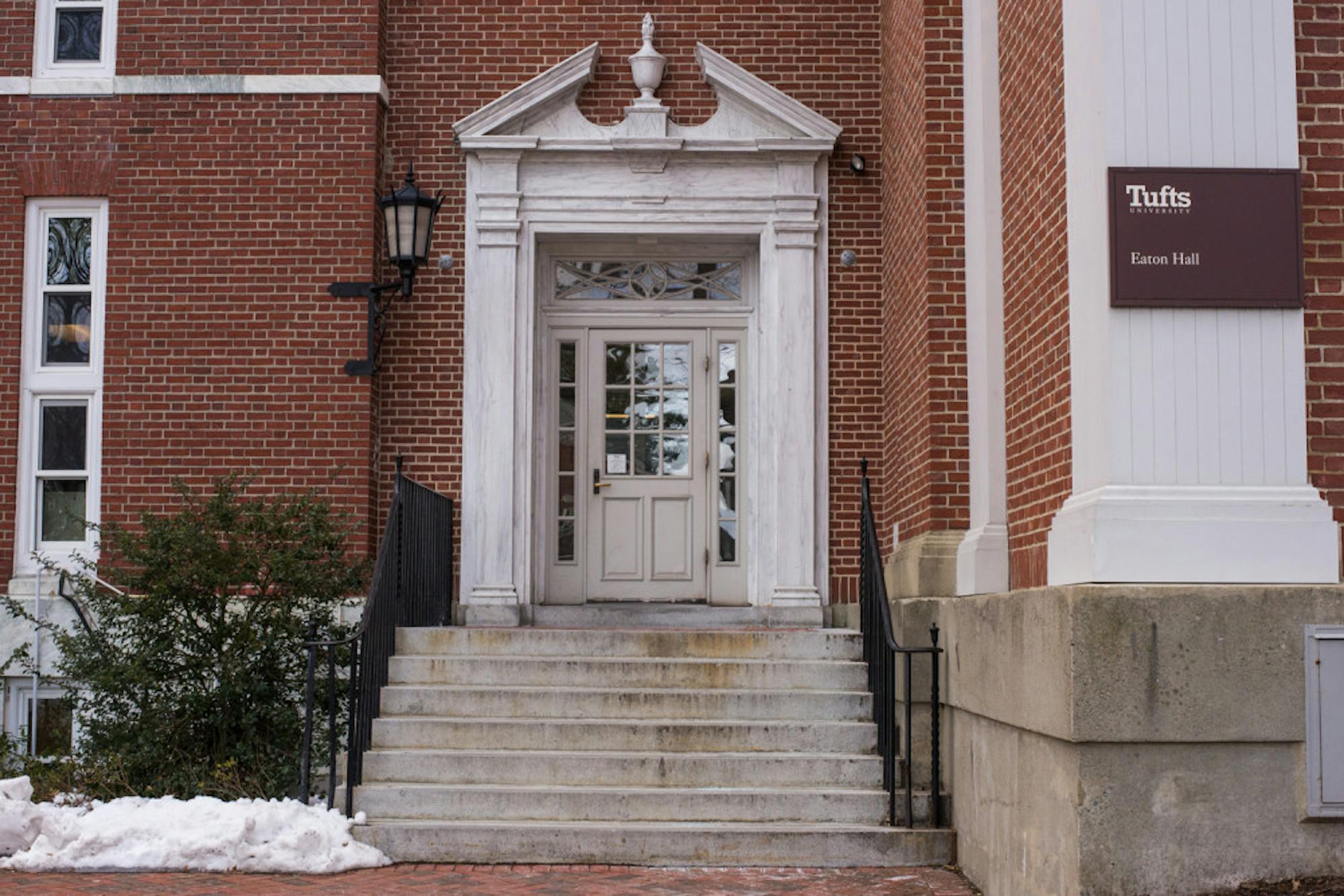The Consortium of Studies in Race, Colonialism, and Diaspora (RCD) will now be able to hire new professors and faculty members after receiving a $1.5 million grant from the Andrew W. Mellon Foundation. According to the foundation’s website, the grant, titled “Professorships in Race, Colonialism, and Diaspora Department,” was awarded to support hiring in the department.
The Board of Trustees voted to allow the RCD to become a department in November 2018. The RCD will gain official departmental status as of July 1, according to Kris Manjapra, director of the RCD.
Manjapra told the Daily in an email that the Mellon Foundation grant supports the renewal of curriculum and will help hire more faculty of color at Tufts.
"Tufts University has historically faced difficulties in diversifying its tenure-track professorial ranks," he said. "The Mellon grant is dedicated to funding hires for the new RCD department, and to building a peerless interdisciplinary department for the study of race, colonialism, and diaspora that will serve Tufts for generations.”
Manjapra later clarified that he was not certain that the positions made possible by the grant would be tenure-track positions.
He pointed out a lack of diverse perspectives in social science and humanities curriculums at Tufts and indicated that students of color on campus have been "systemically underserved at Tufts" with regards to options in curriculum and mentorship.
“I hope the deans of [the School of Arts and Sciences] will continue to invest university resources in diversifying and expanding the Tufts curriculum for the benefit of all our students," he said. "Sustained and ongoing support for the new RCD department should be part of this larger curricular goal."
James Glaser, dean of the School of Arts and Sciences, described the new opportunities the grant creates for the RCD.
“It allows us to plant the seeds for this department," he said. "It's a fledgling project, and the grant gives us the ability to accelerate its growth right from the start and turn it into something meaningful.”
Manjapra said that the department received one of the largest grants that the foundation gives out to individual universities and expressed gratitude toward administrators and students for their advocacy for the RCD.
“The Andrew W. Mellon Foundation has a long track record of funding initiatives that help transform university structures and university culture in progressive ways," he said. "This would not have happened without the strong support of the university's top administrators for the RCD and its students.”
Professor of Romance Studies H. Adlai Murdoch explained the hiring process the RCD will follow when searching for new faculty to fill vacancies in the department, saying that the search will follow established hiring criteria and include consideration of candidates' research and teaching experience.
He added that RCD is hoping to complete the process in a timely manner.
“We would certainly like to have three to four new faculty members in place within the next two years and so these would be either senior faculty members who would be hired with tenure or assistant professors who would then come up for tenure after five or six years," Murdoch said.
He also emphasized the importance of the RCD program’s new status as a department, specifically focusing on its impact on the Africana Studies program.
“Since Africana Studies began as a program with a major and a minor in 2013, it was hobbled by the fact it was a program," he said. "We had very little say on course offerings or faculty hiring because anybody that talked for us was from another department.”
Murdoch noted that the freedom that the RCD's departmental status will benefit the Africana Studies program.
“The fact that we will now be part of a department will free us up to set our own agenda and determine our own future for the first time,” he said.
Glaser noted that the university has had a relationship with the Mellon Foundation and has received grants from them before.
“They’re particularly interested in cutting edge humanities and diversifying curriculum,” he said. “As we learned of the goals of the foundation, we thought about how they matched with our aspirations here, and it seemed like a good fit.”
He also acknowledged the faculty’s efforts to lead the RCD's goals of acquiring funding.
“We could’ve approached them [the Mellon Foundation] with other ideas but given the organic process here … this is not something that came from the deans, this came from the faculty and they have really driven this project,” Glaser said.
Consortium of Studies in Race, Colonialism and Diaspora receives $1.5 million grant






